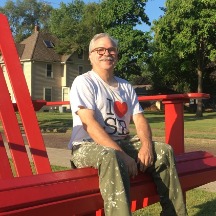This article is part of a ten-article series. See the full list of articles at the end of this one. The articles explore the issues Port of Harlem publisher Wayne Young uncovered and learned about while investing in his economically-challenged hometown, Gary, Indiana, and witnessing gentrification in once-economically challenged Washington, D.C.
The articles cover other places including South Bend, Indiana; Prince Georges County, Maryland; Washington, D.C.; Omaha, Nebraska; Flint, Michigan; Jackson, Mississippi; Florida, and the Lower Colorado River Basin States, specifically, California, Nevada, and Arizona.
As we nailed our way down to the half-way point of our small development in Gary, Indiana, my brother and I hoped to become more involved in Portage Midtown, a group we introduced in the last installment of this series. Among the group’s objectives is the creation of an ecosystem of small developers in South Bend, Indiana.
It sees itself as a catalyst for building ecosystems, not networks.
“Using nature as a metaphor is more powerful,” explained Mike Keen, on the difference between the two words. Keen is the principal of Thrive Michiana, the group behind Portage Midtown. In practical terms, he says, Portage Midtown’s players in the development process work together and the outcomes are “collaborative, balanced, and locally oriented.” He added, “We are not looking for extractive or predatory flippers, but town makers who strengthen the fabric of their neighborhoods.”
Howard Ways, an urban planner and educator based in Metro Washington, DC, supports Keen’s objectives but adds that his major concern is that people don’t often separate economic gentrification from cultural gentrification.
Keen advocates that locals who have their heart, not just a profit motive, rebuild and benefit from their renovations. Flippers, he says, often have no ties to the community. “Our experience is that they come in, do the least they can, and take short cuts to make a profit,” he explained.
Working with town makers is an incremental approach to redevelopment that takes times, he admits. “We try to train people who live in the neighborhood to be developers.” Developing their own neighborhood isn’t a “source of income” for them, “but a way of life,” he continued.
Howard Ways, an urban planner and educator based in Metro Washington, DC, supports Keen’s objectives but adds that his major concern is that people don’t often separate economic gentrification from cultural gentrification. He encourages people to buy where they live or do business there so they can control their destiny and reap any short term and long-term economic benefits. “When you own the property, you have a greater stake in the outcome of the neighborhood and a greater stake in preserving the culture, too,” he says.
Before spreading redevelopment in the former home of Studebaker (the car manufacturer), Keen was a professor of urban studies and sustainability. He began his incremental development career by buying and renovating properties and about 20 vacant lots in what is now Portage Midtown. Soon, he and members of his ecosystem found themselves with what they dub a “farm,” an area of several blocks they are systematically working to cultivate.
In addition to building and teaching, Portage Midtown also advocates on behalf of small developers. They work with government officials to point out the inequities of opportunities such as local governments making capital available only to large developers via tax increment financing deals. In addition, Portage Midtown encourages local officials to redirect conventional economic development resources—tax incentives, pass-through block grants, and one-time deals like COVID stimulus money—to small developers.








